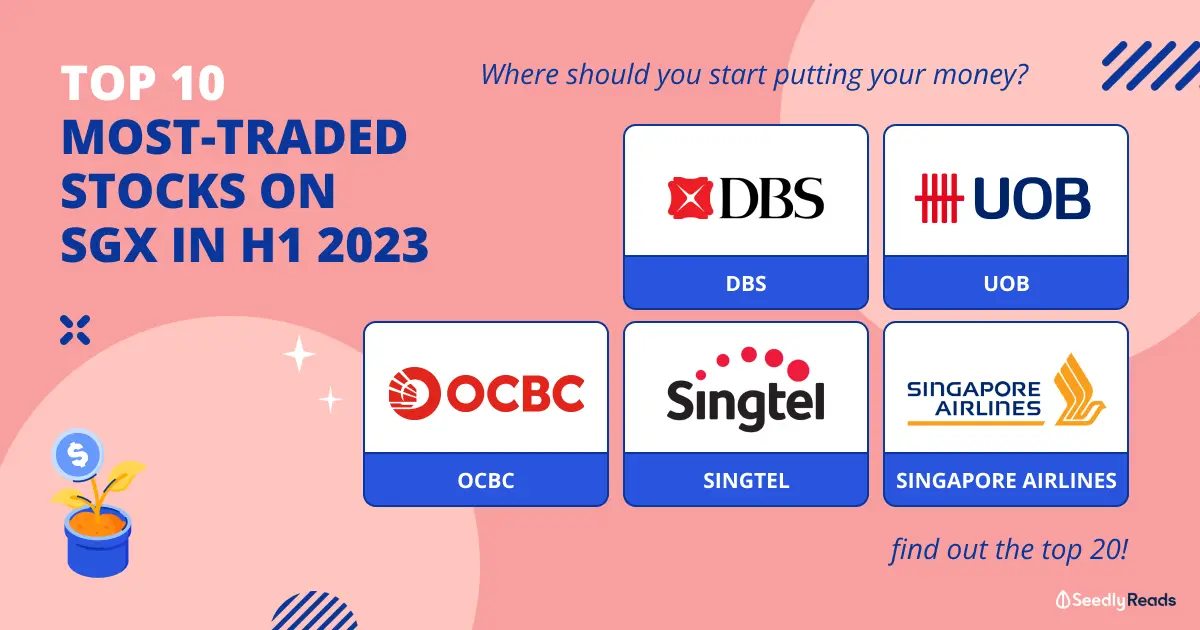Last updated March 11th, 2024.
Singapore is a small country in terms of size. Yet due to its wealth and status as Southeast Asia’s financial hub, both locals and foreigners want to buy stocks in Singapore more than ever.
Since 1960, Singapore’s economy has averaged an annualized 7.5% growth rate, which may be the fastest development and industrialization rate in human history.
Unsurprisingly, Singapore’s stock market is Southeast Asia’s largest exchange in terms of market cap.
Its markets are connected to every major economy in the world. Because of this, opening a Singapore brokerage account allows you to invest in stocks across the globe, including Europe, Japan, and China.
As a founding member of ASEAN, having a brokerage account in Singapore doesn’t simply let you access the city itself. You can invest in difficult-to-access frontier markets like the Philippines and Indonesia, which are primed for growth in the coming decades.
Given that Singapore ranks among Asia’s top financial hubs, it makes sense that its Singapore dollar is also one of the world’s most stable currencies.
Buying stocks in Singapore, and indeed any assets denominated in terms of its dollar, may be able to defend against market volatility.
Here’s our complete guide on how to buy stocks in Singapore – in particular, from the perspective of a foreign trader. The process is far easier if you’re a citizen or PR.
Step 1: Open a Stock Brokerage Account in Singapore
Chances are that if you’re dealing with a halfway decent brokerage firm in a developed nation, you can trade stocks in Singapore through their online platform.
That said, what they’ll likely bury in the fine print is that they will slap a hefty fee on any transaction involving these stocks.
Foreign brokerage firms, like Fidelity or Schwab, tacking on a S$50 transaction fee to trade stocks in Singapore isn’t unheard of.
While transaction fees make little difference if you’re making trades worth hundreds of thousands of dollars, you can easily bypass the fees (and diversify your offshore assets) if you set up a local broker based in Singapore.
The top 3 banks in Singapore are UOB, DBS, and OCBC. Each one of these has its own brokerage division, and if you can secure an account with one, it’s probably the best option.
It’s especially worth noting that while many Singaporean brokerage firms will let non-residents open an account, there is a restriction on US citizens doing so, except for Saxo Bank and OCBC.
Furthermore, even non-US citizens and non-residents should take note of these banks, as they’re among the few that can open brokerage accounts in Singapore remotely without requiring customers make a personal visit.
However, flying to Singapore may be unavoidable if you don’t already have a Singaporean bank account.

A Singapore brokerage account offers access to one of the world’s most competitive stock markets.
Step 2: Get Your CDP Account
To simplify ownership transference of stocks, anyone trading in Singapore must open an account at the Central Depository (CDP). The CDP, in turn, is the entity that holds your stocks instead of your broker.
In other words, your broker would issue orders to buy and sell shares in a given company while the CDP registers the transactions. This simplifies deal settlements and reduces market friction.
To open a CDP account, you need a Singaporean bank account (with Citi, DBS/POSB, HSBC, Maybank, OCBC, Standard Chartered, or UOB). Applicants must be over the age of 18 and not be in bankruptcy.
Afterwards, you must complete an application on the Singaporean exchange (click here). This process shouldn’t take any longer than 15 minutes.
Yet, as with any bureaucratic process, you’ll need various documents. These include papers proving your identity (passport, residency card, etc.), banking details, and relevant tax information.
Generally speaking, most reputable local stock brokers in Singapore should also be able to help their foreign clients get a CDP account. Be sure to ask your broker of choice if you want their assistance.
Step 3: Start Trading Stocks in Singapore
The mechanics of trading Singapore shares are probably similar to your home country.
Do keep in mind though, the online user interface of Singaporean brokerages can vary widely in terms of quality, with each brokerage having a different UX, available information, etc.
If you aren’t familiar with buying stocks in Singapore, there may be a slight learning curve, even if you’re an experienced trader elsewhere.
While Singapore is very internationally-minded and seeks to ease culture shock for foreign investors, it still does things in its own way. Even mundane operations like funding your brokerage account may work differently than what you’re used to.
But the additional effort is very well worth it, as investing in Singapore is among the most straightforward and efficient ways to trade stocks across Asia and the world.
Perhaps more importantly, you’ll be able to partake in the miracle that is the Singaporean economy!
FAQs
How Can I Buy Shares in Singapore Without a Broker?
It's not possible to buy stocks in Singapore without a broker. The closest you'll get is self-directed trading via an online platform, such as WeBull or Moomoo. But these are still brokerages, and you'll still need to use one to complete the transaction.
Can Foreigners Open a Brokerage Account in Singapore?
Yes, it's possible to open a brokerage account in Singapore as a foreign non-resident. Two of the best brokers in Singapore for foreigners are Saxo and iOCBC.
How Can I Start Trading in Singapore?
Opening a brokerage account is the very first step! If you're a Singapore citizen or PR, simply walk into any branch of UOB, DBS, or OCBC. They'll set you up.
If you're a foreigner, the process is a bit more complicated though. A large broker in your home country might be able to access Singapore's stock market. But if you want to open a brokerage account in Singapore and trade here directly, we cover this process in detail further above.







